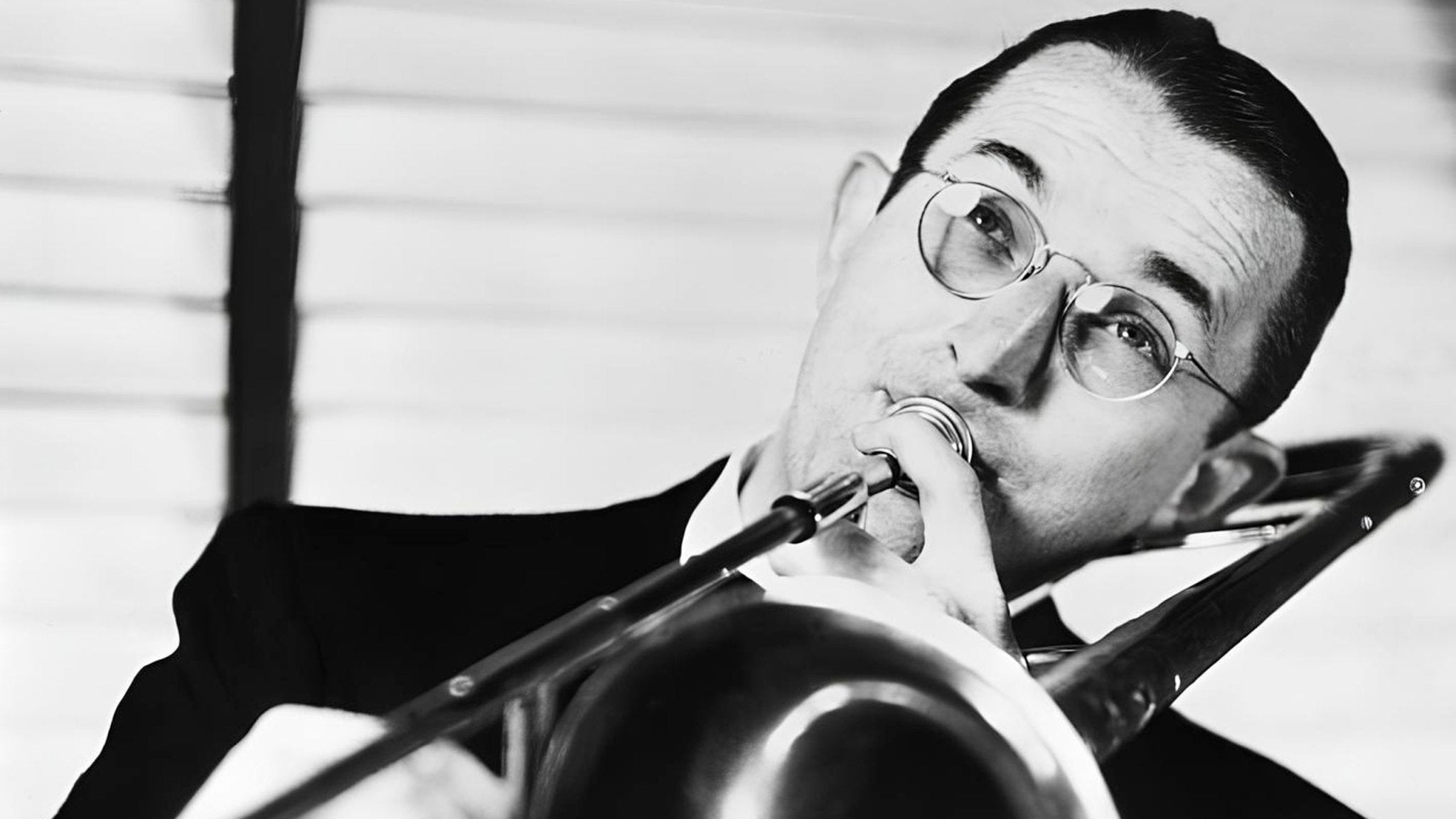
Tommy Dorsey: A Musical Legacy of a Big Band Leader and Trombonist

An American trombonist, composer, and bandleader from Pennsylvania, Tommy Dorsey entered the history of music as "The Sentimental Gentleman of Swing”. Independently and together with his brother Jimmy, he led some of the most popular bands of that time, who influenced the swing and big band jazz era. In this article, we will explore the personal and creative journey of this highly respected and influential trombonist.

Tommy Dorsey, Early Years
Born on November 19, 1905, Tommy was a younger brother of Jimmy Dorsey and the second of four children of Thomas Francis Dorsey Sr. He started his musical career with playing a trumpet, learning it from his father, who was a music teacher and a leader of a marching band. Later, he switched to the trombone and played it even more frequently than the trumpet, although his trumpet playing was excellent.

During their teenage years, both brothers performed with several bands before they started playing in their own group. When Tommy was 15, due to his brother’s recommendation, he replaced Russ Morgan in a territory band, Scranton Sirens. They also collaborated with bands led by Tal Henry, Rudy Vallee, Vincent Lopez, and Nathaniel Shilkret. Tommy Dorsey played in Jean Goldkette’s Detroit band, the California Ramblers, and collaborated with an American orchestral director and composer Paul Whiteman.

Tommy and Jimmy Dorsey
In 1920, Tommy Dorsey and his brother Jimmy Dorsey formed their own band Dorsey's Novelty Six, which was among the first jazz bands to gain notice in the Baltimore area and helped the brothers establish themselves as musicians. By the 1922, they have rebranded as Dorsey's Wild Canaries, whose music broadcasted on radio. During this period, Tommy actively played with many various musical groups, both individually and with his brother. In 1927, they recorded with various musicians, leading them to change their name once more and become the Dorsey Brothers Orchestra.

In the late 1920s and early 1930s, they released several hits, including “Coquette” recorded in 1928 for Okeh Records. The song was composed by the Dorsey brothers and featured Bill Dutton on vocal. It received high appreciation and reached a chart status. The song played a significant role in establishing the Dorsey Brothers Orchestra's reputation in the jazz and swing music scene.

Other hits of the brothers included the following songs: "Let's Do It (Let's Fall in Love)" (1929), "Dixie Dawn" (1928), "Sally of My Dreams" (1929), "Fine and Dandy" (1930), "Old Man Harlem" (1933), “I Believe in Miracles" (released via Decca in 1934), “Annie's Cousin Fanny" composed by Glenn Miller, "Tomorrow's Another Day", "Harlem Chapel Chimes", and "Dese Dem Dose".

Tommy Dorsey and Frank Sinatra
Because of some disagreements with his brother, Tommy left the band and established his own Dorsey’s Orchestra in 1935, where they had their hit "Every Little Moment”. Tommy’s orchestra rendered ballads at fast tempos, featuring various skillful singers. During that time, Tommy also recorded “I’m Getting Sentimental over You,” which greatly influenced his nickname “The Sentimental Gentleman of Swing.”
A significant singer in Dorsey’s band was Frank Sinatra, whom Dorsey hired in January 1940, and who soon became the band’s star feature during the following three years. Sinatra appreciated collaboration with Dorsey and mentioned him as the man who had influenced him with his phrasing and breath control.

Dorsey-Sinatra collaboration included “I’ll Never Smile Again,” “I’ll Be Seeing You,” “Oh! Look at Me Now,” “East of the Sun,” and “In the Blue of Evening.” The song "I'll Never Smile Again," became remarkably successful and stayed at number one on the Billboard pop singles chart for twelve weeks in 1940.

Dorsey Brothers’ Reunion
In 1947, the Dorsey brothers reunited for an autobiographical film The Fabulous Dorseys. In 1953, Jimmy joined Tommy as a soloist and band member. Tommy Dorsey had managed to continue running his big band up to the mid-1950s.

Initially performing as The Tommy Dorsey Orchestra, they soon returned to their original name, the Dorsey Brothers Orchestra. During the 1950s, the brothers received the biggest recognition thanks to the television program Stage Show (the one where Elvis Presley made his TV debut), in which they hosted during 1954-1956. After Tommy’s death on November 26, in 1956, just a week after turning 51, his brother Jimmy continued to lead the band.

Tommy Dorsey’s Style
Dorsey’s performance on the trombone stood out due to its ballad style, featuring smooth flowing legato passages and pure tones. Music critics and fellow musicians praised him for clear and distinctive sound with accurate intonation. Sometimes Dorsey’s playing was compared to singing due to its smoothness, which he achieved thanks to his perfect breath control.

Regarding Dorsey’s big band music style, it varied from dance tunes to hot swing. His Clambake Seven stood out for their intense jazz. The Dorsey’s music was versatile due to the skillful performance of other musicians he collaborated with, such as trumpeters Ziggy Elman and Bunny Berigan, saxophonists Johnny Mince and Bud Freeman, guitarist Al Viola, pianist Joe Bushkin, and drummer Buddy Rich. He also collaborated with Paul Weston, Bill Finegan, and Sy Oliver.

Conclusion
Tommy Dorsey’s melodic trombone playing not only defined his orchestra, but also became a significant part of swing music. He masterfully blended ballads and popular songs, collaborating with talented musicians and vocalists, including Frank Sinatra. He successfully led his big band during many years and co-hosted a national television show together with his brother Jimmy, in the 1950s. Tommy Dorsey still stays one of the greatest inspirations for contemporary trombonists.

Thanks for reading our article! Would you like to learn more information about other trombone players? Recently we have featured an article about Curtis Fuller.
If you’re interested in buying high-quality trombone accessories, check out this category, featuring leather mutes with built-in magnet and mouthpiece pouches. You can make these accessories more personalized and suitable for gifts by requesting free embossing. Learn more about how we do embossing on leather products in our article.




















 https://mgleatherwork.com/pages/about-us
https://mgleatherwork.com/pages/about-us
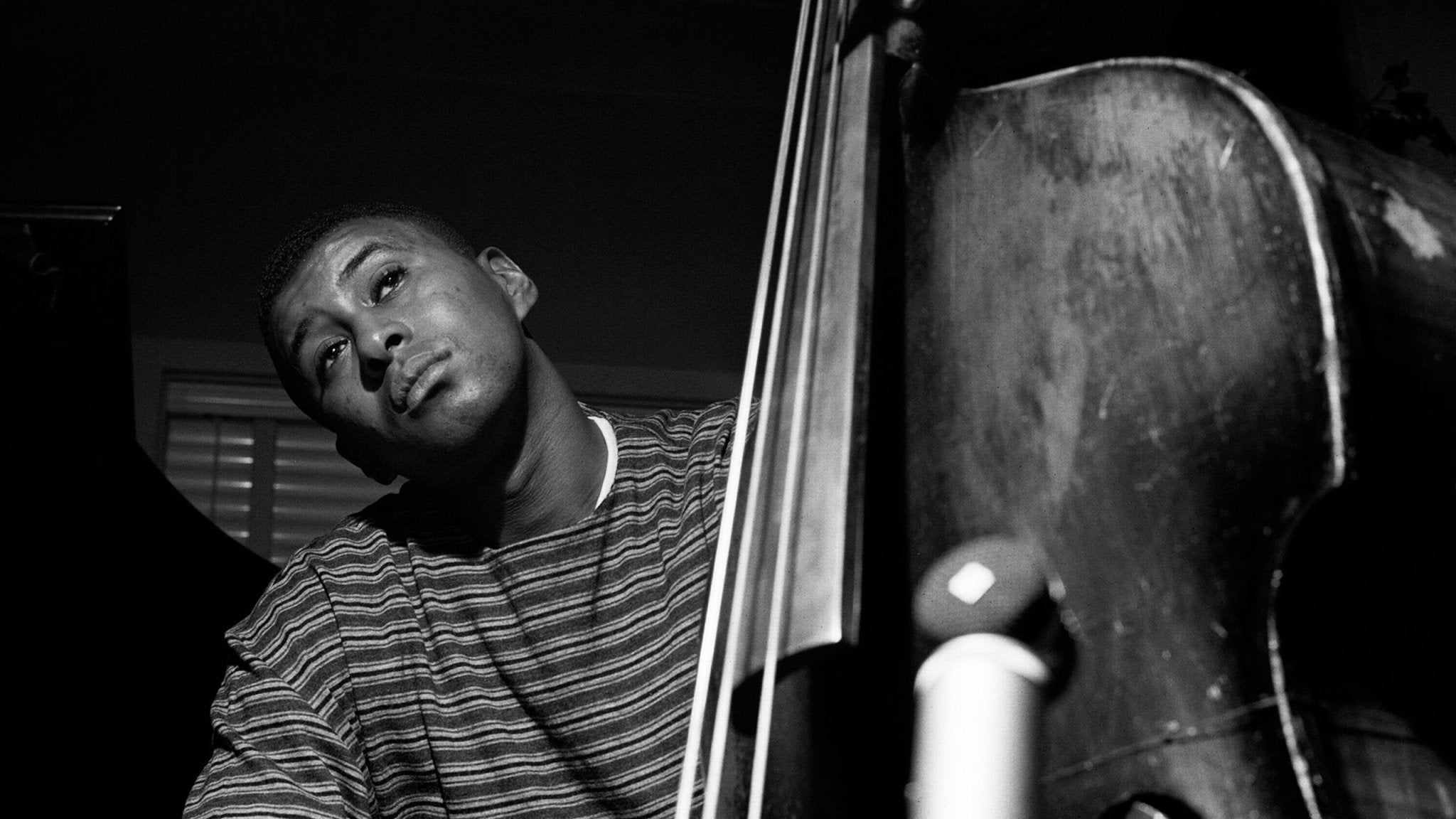
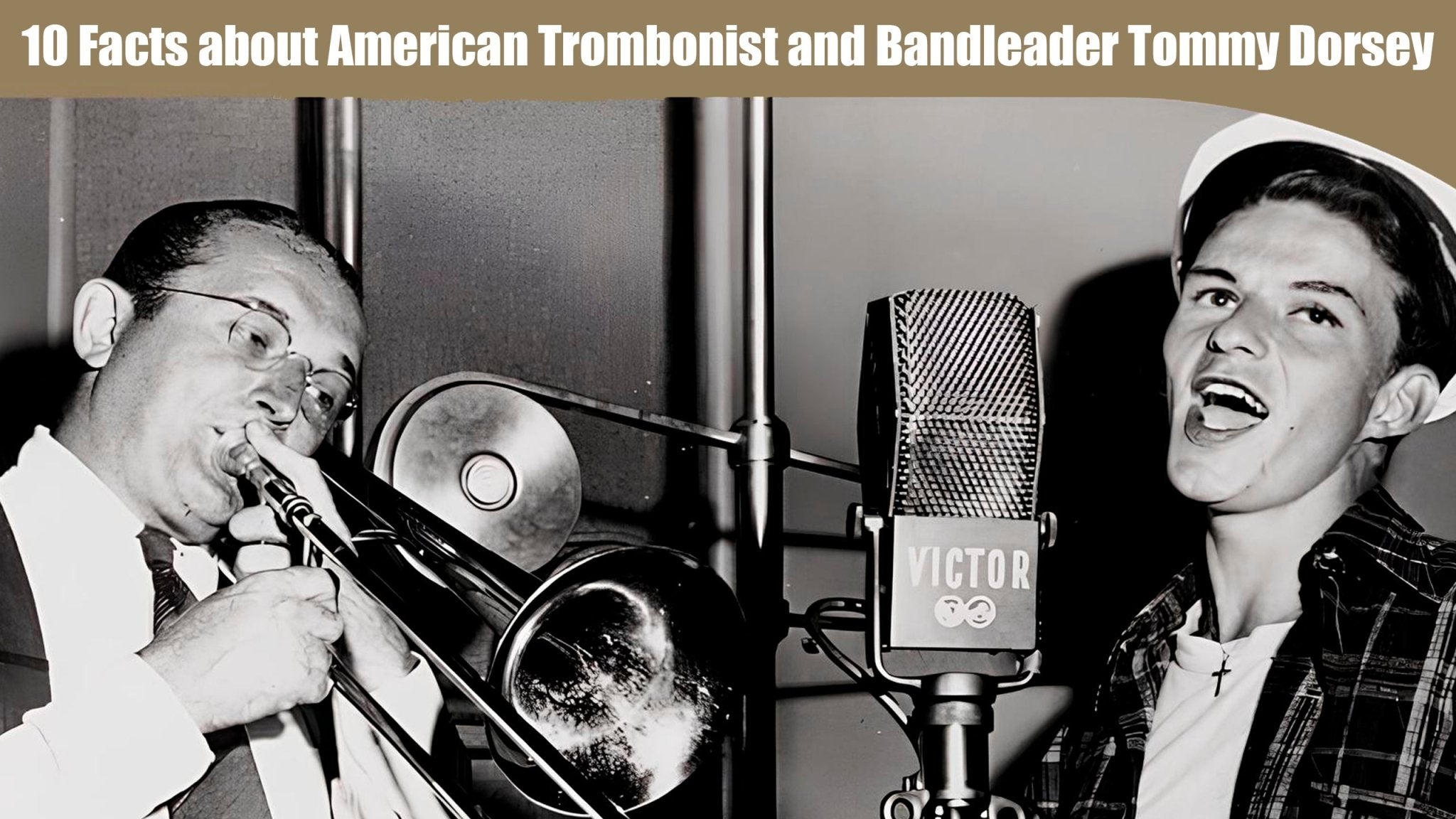
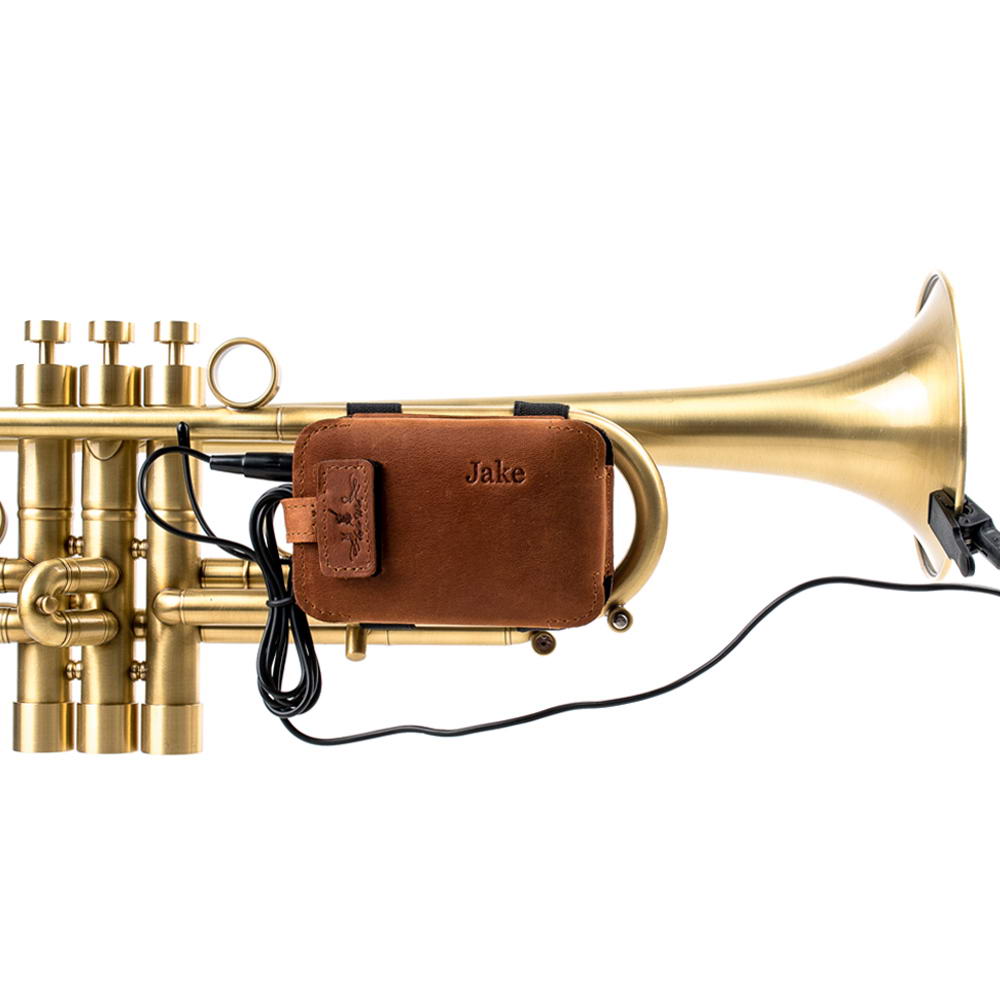

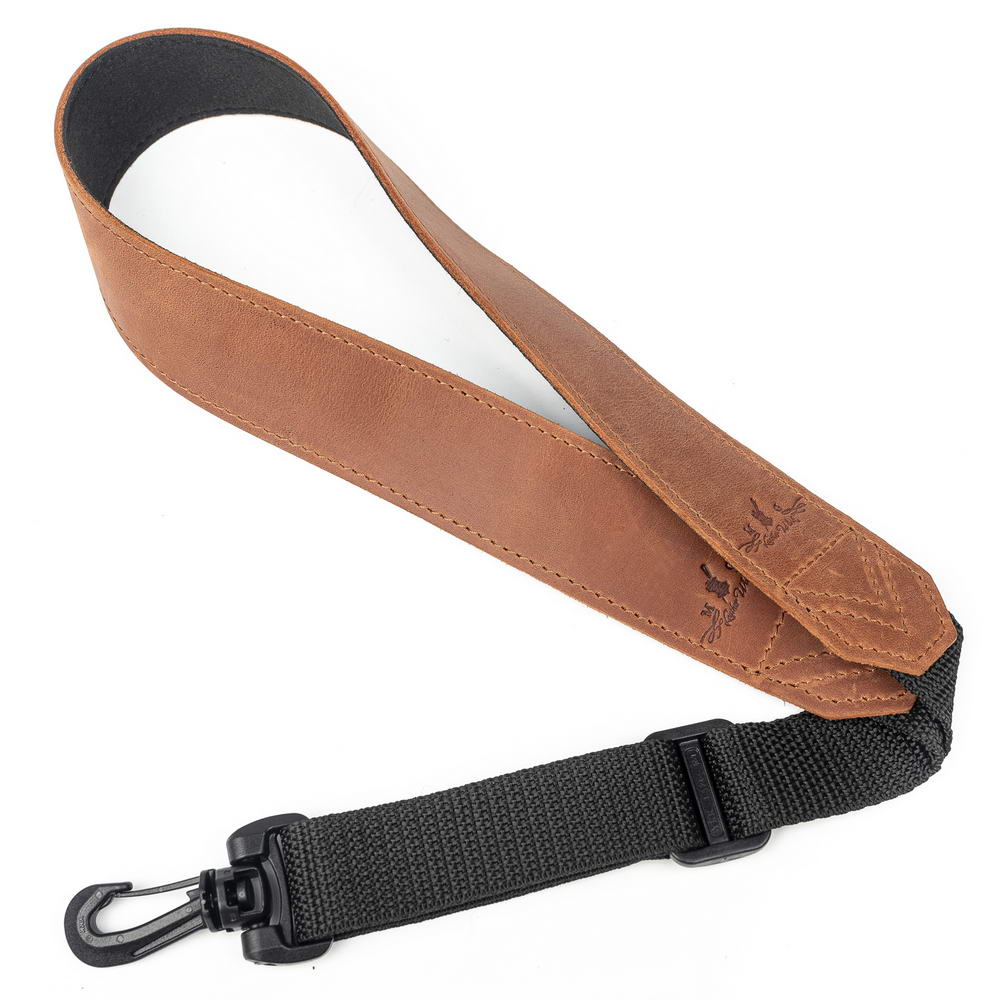
Leave a comment
This site is protected by hCaptcha and the hCaptcha Privacy Policy and Terms of Service apply.